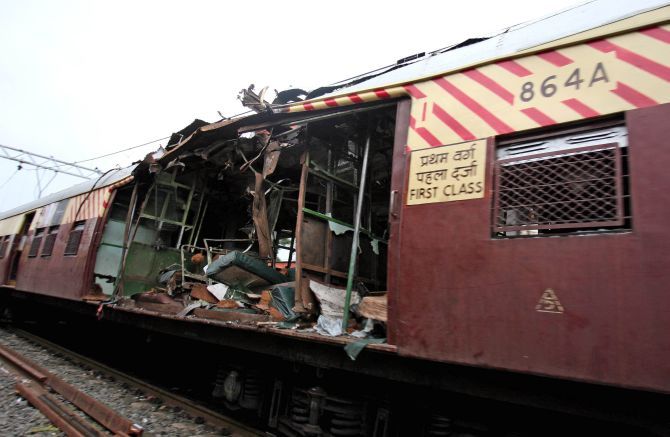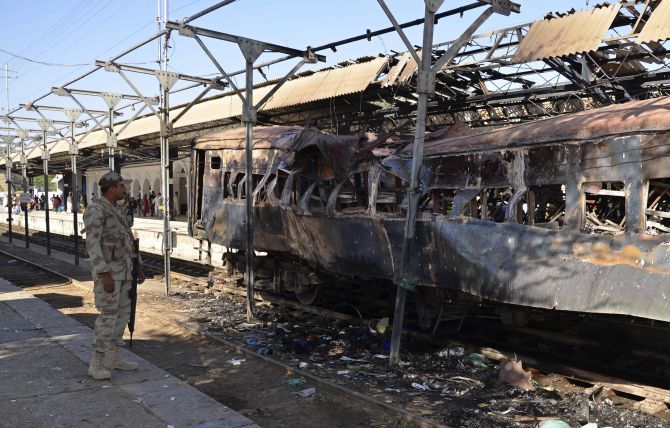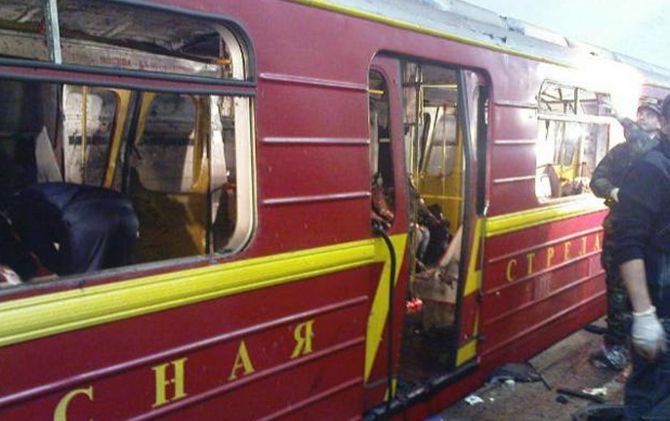A special MCOCA court has awarded the death sentence to five of the Mumbai train blasts convicts on Wednesday. Reports state that the five planters of the bombs have been awarded the death sentence while the remaining seven convicts have been awarded life imprisonment.
Also read: 7/11 Mumbai train blasts: 5 get death; 7 sentenced to life
On July 11, 2006, several bomb blasts ripped through Mumbai's local trains in a synchronised attack in the evening peak hours. Altogether 188 people were killed and 816 were injured.
Terror attacks on moving trains are not uncommon. The large number of people in an enclosed place can make terrorist attacks particularly catastrophic. Such devastation always coincides with the radicals’ interests.
One, because such attacks cause maximum damage and panic and two, because preventing such attacks is extremely difficult for security forces.
Here are some of the worst terror attacks in recent history with trains and passengers as intended targets.
1. 2006 Mumbai train blasts

The 11 July 2006 Mumbai train bombings were a series of seven bomb blasts that took place over a period of 11 minutes on the Suburban Railway in Mumbai, the capital of the Indian state of Maharashtra and the nation's financial capital.
The bombs were set off in pressure cookers on trains plying the Western line of the Suburban Railway network. 188 people were killed and over 700 were injured.
Also Read: 7/11 Mumbai train blasts: What role did the convicts play?
2. Jaffar Express blasts in Pakistan

The bomb hit the Jaffar Express train in Baluchistan killing at least six people and wounding more than 17 others.
The device, apparently planted on the railway track, exploded when the train approached a station in Naseerabad district, around 250 kilometres (150 miles) southeast of Quetta, the capital of insurgency-hit Baluchistan province.
3. 2014 Chennai train bombing

2014 Chennai train bombing is the explosion of two low-intensity bombs on the early hours of 1 May 2014 in a Guwahati bound train from Bangalore arriving at the Chennai Central railway station, killing 1 woman passenger and injuring at least 14 others.
4. Jnaneswari Express train derailment

The Jnaneswari Express derailment occurred on 28 May 2010 in the West Midnapore district of West Bengal, India.
It was claimed that Naxal militants bombed the railway track, which in turn led to a train's derailment before an oncoming goods train hit the loose carriages resulting in the deaths of at least 141 passengers.
5. Samjhauta Express bombings

The 2007 Samjhauta Express bombings were terrorist attacks that occurred around midnight on 18 February 2007 on the Samjhauta Express, a twice-weekly train service connecting Delhi, India, and Lahore, Pakistan.
Bombs were set off in two carriages, both filled with passengers, just after the train passed Diwana station near the Indian city of Panipat, 80 kilometres (50 mi) north of New Delhi. Sixty-eight people were killed in the ensuing fire and dozens more were injured. Of the 68 fatalities, most were Pakistani civilians.
6. 2010 Moscow Metro bombings

The 2010 Moscow Metro bombings were suicide bombings carried out by two women during the morning rush hour of March 29, 2010, at two stations of the Moscow Metro (Lubyanka and Park Kultury), with roughly 40 minutes interval between. At least 40 people were killed, and over 100 injured.
7. 2004 Madrid train bombings

The 2004 Madrid train bombings (also known in Spain as 11-M) were nearly simultaneous, coordinated bombings against the Cercanías commuter train system of Madrid, Spain, on the morning of 11 March 2004 -- three days before Spain's general elections and two and a half years after the September 11 attacks in the United States.
The explosions killed 191 people and wounded 1,800.
8. 7/7 London bombings

On the morning of Thursday, 7 July 2005, four Islamist extremists separately detonated three bombs in quick succession aboard London Underground trains across the city and, later, a fourth on a double-decker bus in Tavistock Square.
Fifty-two civilians were killed and over 700 more were injured in the attacks, the United Kingdom's worst terrorist incident since the 1988 Lockerbie bombing as well as the country's first ever suicide attack.
Also read: The only 7/11 blast accused who escaped conviction






 © 2025 Rediff.com -
© 2025 Rediff.com -